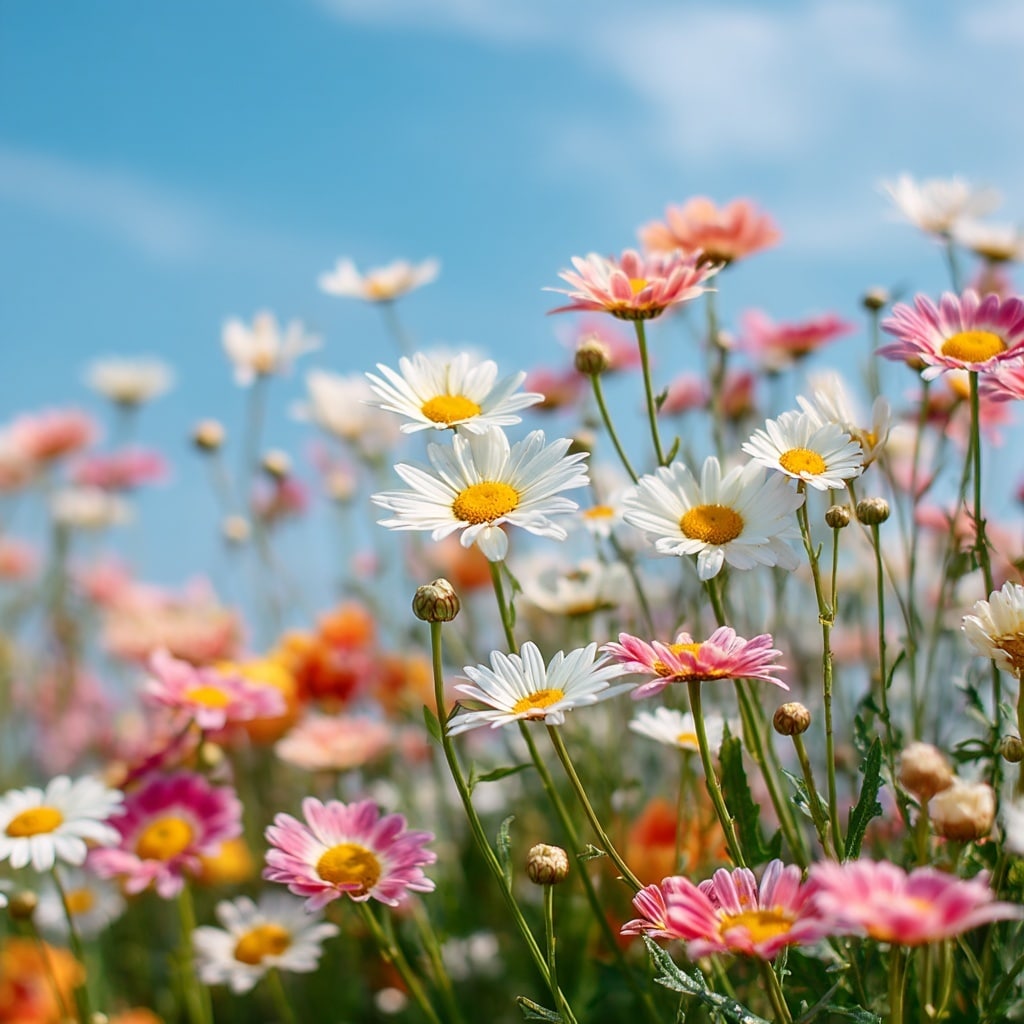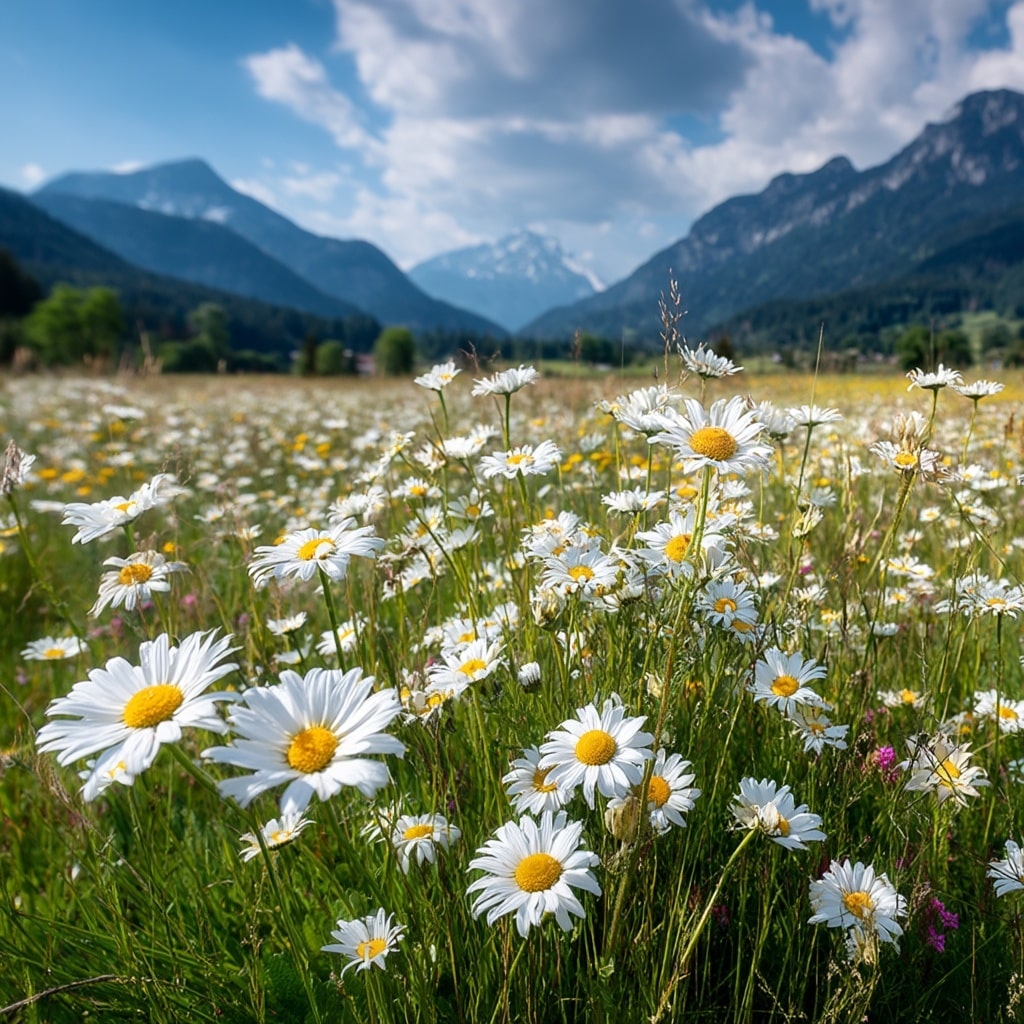Daisy flowers have a timeless charm that instantly brightens up gardens, meadows, and windowsills. With their sunny centers and simple petals, the daisy is one of the most recognized and beloved flowers around the world. Whether popping up in a wild field or featured in a bouquet, daisies carry a light, joyful presence that few other flowers can match. But beyond their cheerful appearance, these blooms have some truly surprising traits. From their global adaptability to their symbolic meanings, there’s more to the daisy than meets the eye.
Table of Contents
Daisies Grow Almost Everywhere
The daisy is one of nature’s most adaptable flowers. Originally native to Europe and parts of Asia, it now thrives on every continent except Antarctica. From mountain slopes to flat fields, and from sunny gardens to partly shaded forests, daisies flourish in a wide range of environments.
What makes the daisy so resilient is its ability to grow in both dry and wet climates, and in soils that range from sandy to rich loam. Whether you live in a cool northern climate or a warm southern zone, chances are you can grow daisies with ease.
Interestingly, daisies are also botanical relatives of sunflowers, which explains their similar appearance and sun-loving nature.
The Name “Daisy” Has a Lovely Origin
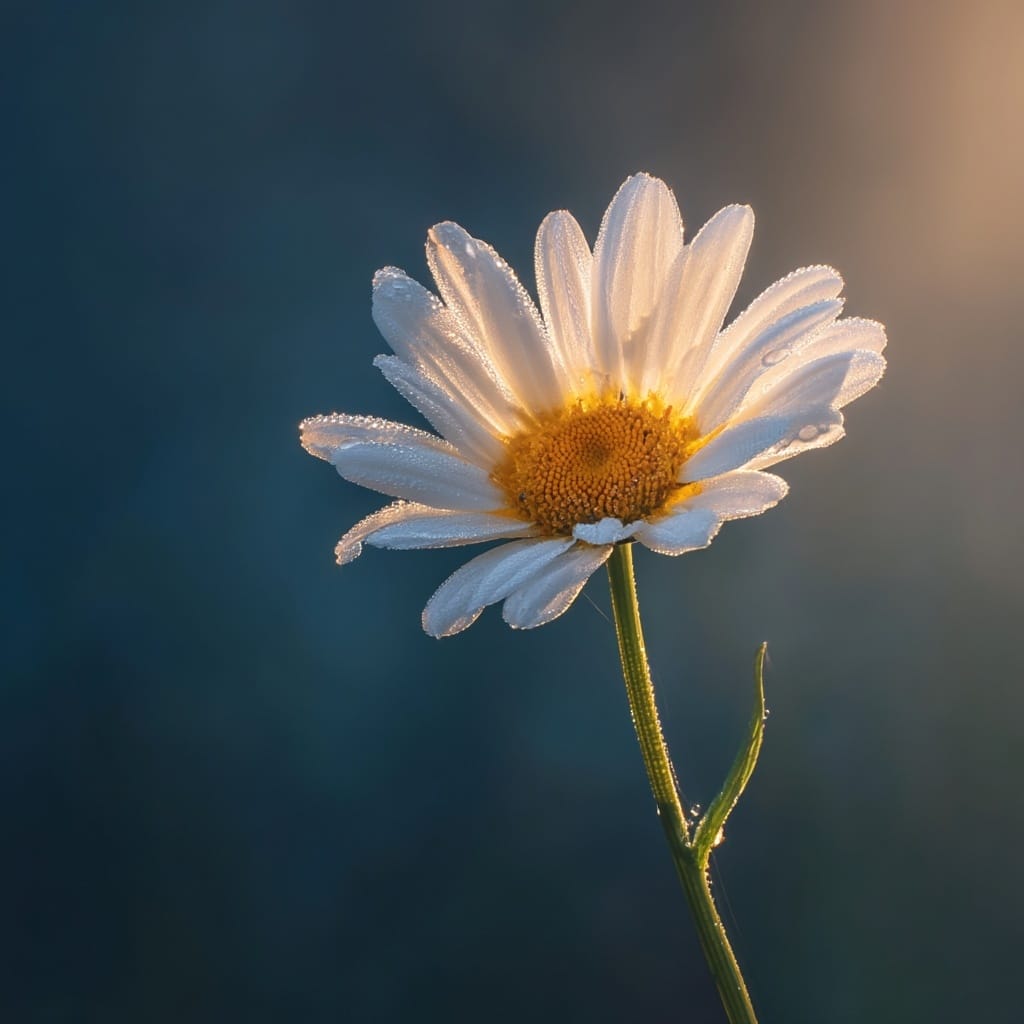
The word daisy comes from the Old English phrase “daes eage”, which means “day’s eye.” This poetic name reflects the flower’s daily rhythm—its petals gently close at night and reopen with the morning sun, almost like the flower is waking up with the day.
This charming behavior isn’t just beautiful to watch—it’s also why the daisy has long been associated with innocence, renewal, and the joy of a fresh start. In gardens, meadows, and folklore, the daisy continues to symbolize purity and light, thanks in part to its simple routine of greeting the sun every morning.
Daisies Are Edible and Medicinal
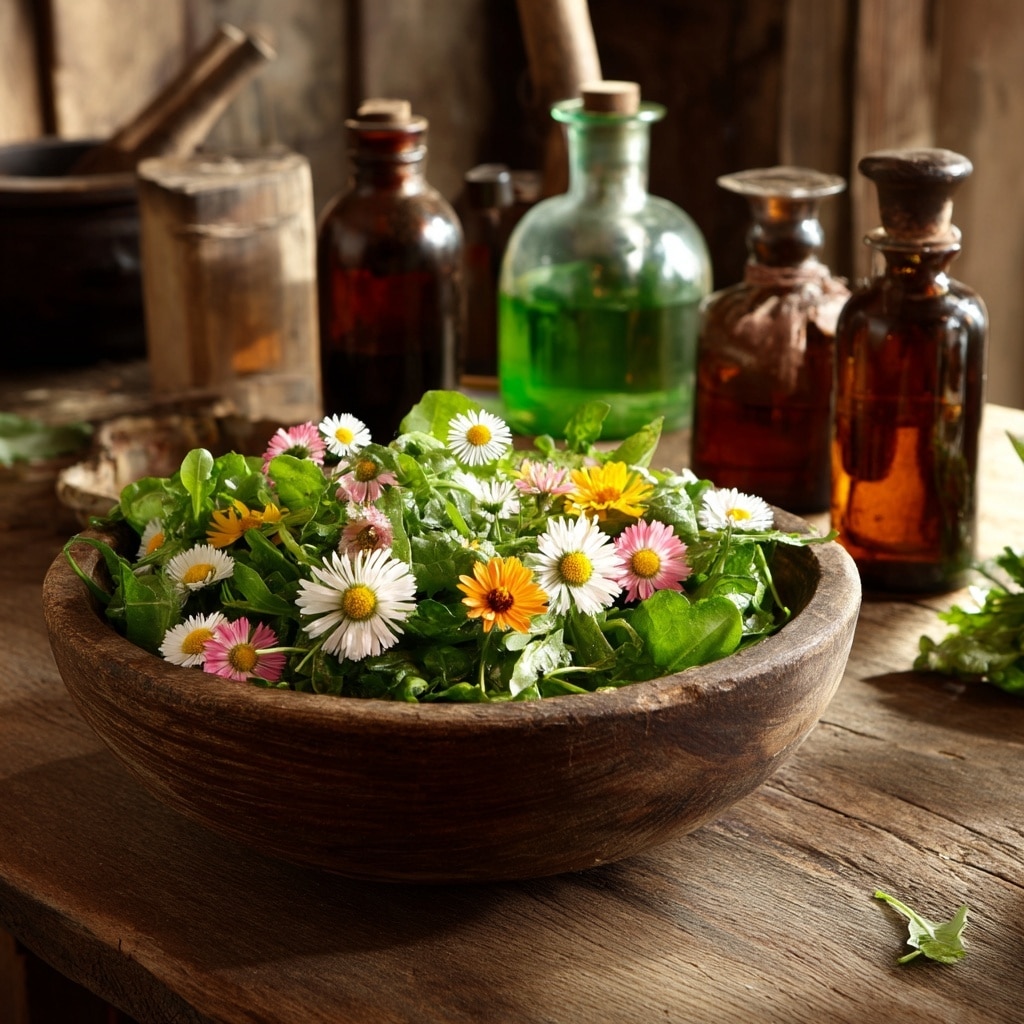
The daisy isn’t just a pretty face—it also has practical uses that go beyond the garden. Many daisy varieties are edible and have been used in herbal remedies for centuries. The petals can add a delicate, slightly bitter note to salads, cakes, or teas, offering a unique touch to homemade dishes.
In traditional medicine, daisy infusions have been used to ease indigestion, calm coughs, and reduce minor bleeding. They’re also thought to support skin healing and overall immune health.
However, not all daisies are safe to eat—especially if they’ve been treated with pesticides. Always choose organically grown flowers, and if you have allergies (especially to ragweed or chrysanthemums), it’s best to avoid consuming them altogether.
Pollinators Love Daisies
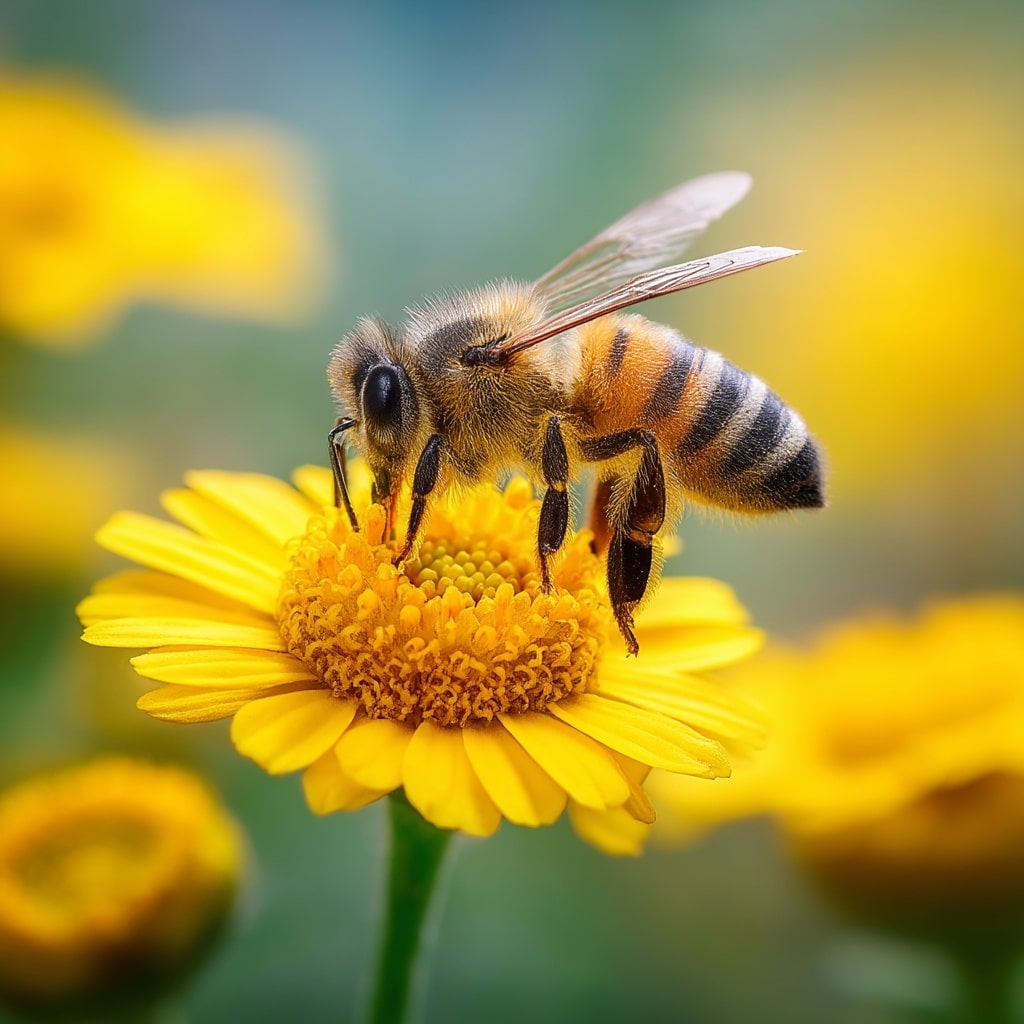
If you’re planting a pollinator-friendly garden, the daisy is a natural choice. Its wide, open shape makes it incredibly accessible to bees, butterflies, and other beneficial insects. The yellow center of a daisy isn’t just decorative—it’s made up of hundreds of tiny florets, each packed with nectar and pollen.
Bees especially love varieties like the Shasta daisy, which provide an easy landing pad and a reliable food source. By planting daisies, you’re not only adding charm to your garden but also supporting local ecosystems by helping pollinators thrive.
It’s one of the simplest ways to bring beauty and biodiversity together in your outdoor space.
Daisies Are Rich in Symbolism
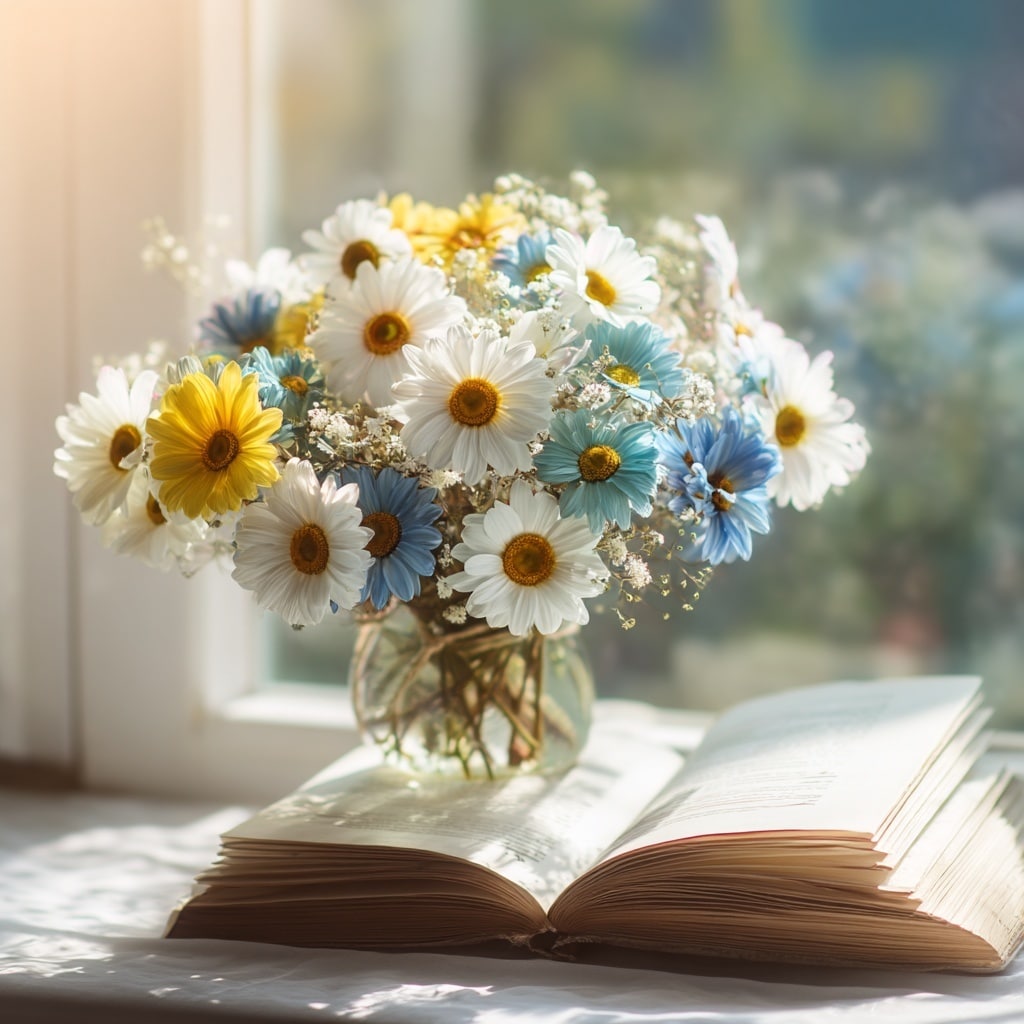
The daisy carries deep symbolic meaning across many cultures. It’s most commonly associated with innocence, purity, and new beginnings—likely thanks to its fresh appearance and morning-blooming habit. In flower language, giving someone daisies often conveys loyalty, patience, and simple, heartfelt affection.
Different daisy types hold unique meanings, too. The classic white daisy stands for humility and sincerity, while blue Marguerite daisies symbolize peace and emotional openness. It’s also the official birth flower for the month of April, making it a thoughtful gift for spring birthdays or baby showers.
Whether in a bouquet or blooming in the yard, daisies quietly speak the language of gentle beauty and meaningful connection.
Conclusion
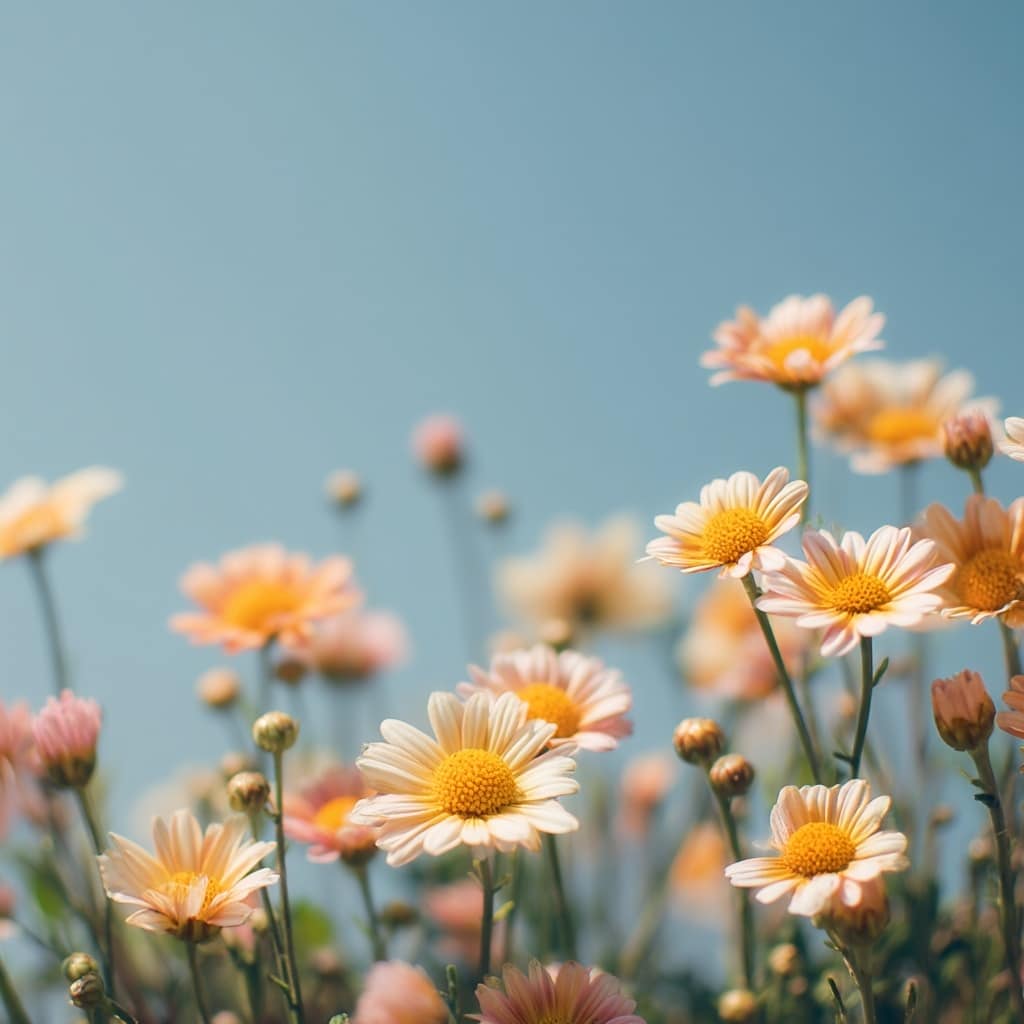
The daisy may look simple, but it carries a world of beauty, resilience, and meaning. From growing in nearly every corner of the globe to symbolizing new beginnings, this flower brings joy wherever it blooms. It’s edible, pollinator-friendly, and rich with folklore—proving that daisies are much more than garden fillers. If you’re looking to add a flower that’s low-maintenance, cheerful, and full of character, the daisy is an easy and rewarding choice for any gardener.

